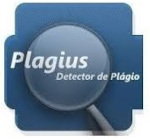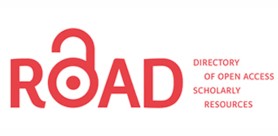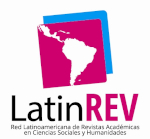MATHEMATICS AND DISINTEREST OF STUDENTS IN CURRENT SCHOOL
DOI:
https://doi.org/10.47180/omij.v1i1.15Keywords:
Knowledge Construction, Teachers, School PlanningAbstract
The math itself is a key role in people's lives, contributing to problem solving, applications work, and work as a tool for building knowledge in other curricular areas. It interferes also in the formation of intellectual capacity, the structuring of thought and streamlining the deductive reasoning of the student. In this sense, the present study aimed to analyze the learning difficulties in mathematics discipline in high school. Raising some data to help understand the lack of interest in mathematics and identify math disapproval of reasons. Thus, a survey was conducted with students, there is no need identification in order to clarify and better understand some information that was collected. It is observed that some teachers report a lack of physical space itself to carry out the activities, the absence of necessary reagents and materials, and a deficit preparation for this type of activity as the main problems for the aspect mentioned. Therefore, the teacher must be aware of the need to be with their classes always thoughtful. This planning will leave you with more security and able to discuss with their students about the content developed, seeking a commitment from everyone in the pursuit of knowledge.
Downloads
References
ARAÚJO, J. L.; BORBA, M. C. Construindo pesquisas coletivamente em Educação Matemática. In: ARAÚJO, Jussara de Loiola; BORBA, Marcelo de Carvalho. Pesquisa Qualitativa em Educação Matemática. Belo Horizonte: Autêntica, 2004.
BOCK, A. M. B. (org). Psicologias: uma introdução ao estudo de Psicologia. 13. ed. São Paulo: Saraiva, 1999.
BORUCHOVITCH, E.; BZUNECK, J. A. (orgs.). A motivação do aluno: contribuições da psicologia contemporânea. 3. ed. Petrópolis: Vozes, 2004.
BRASIL. Parâmetros curriculares nacionais: matemática. 3. ed. Brasília: MEC/SEF, 2001.
DANTE, L. R. Didática da resolução de problemas de matemática. São Paulo: Ática, 1989.
D'AMBROSIO, U. Da realidade à Ação: Reflexões sobre Educação (e) Matemática. Campinas. SP: Summus/UNICAMP, 1986.
DOCKRELL, J. MCSHANE, J. Crianças com dificuldades de aprendizagem: uma abordagem cognitiva. Trad. Negrera, A. Porto Alegre: Artes Médicas Sul, 2000.
FREIRE, P. Pedagogia da autonomia: saberes necessários à prática educativa. 9. ed. São Paulo: Paz e Terra, 1998.
GODOY, A. S., Introdução à pesquisa qualitativa e suas possibilidades, In Revista de Administração de Empresas, v. 35, n. 2, mar./abr. 1995a, p. 57-63. Pesquisa qualitativa. - tipos fundamentais, In Revista de Administração de Empresas, v. 35, n. 3, Mai./Jun., p. 20-29, 1995b.
LIMA, E. S. Desenvolvimento e aprendizagem na escola: Aspectos Culturais, Neurológicos e psicológicos. São Paulo: GEDH; série “Separatas”, 1997.
LOPES, M. G. Jogos na educação: criar, fazer e jogar. 6. ed. São Paulo: Cortez, 2005.
LORENZATO, S. Para aprender matemática. Campinas, SP: Autores Associados, (Coleção Formação de Professores). 2006.
MIGUEL, A.; MIORIM, M. Â. História na Educação Matemática: Propostas e Desafios. 2. ed. Belo Horizonte: Autêntica Editora, 2011.
PARRA, C.; SAIZ, I. Didática da Matemática: Reflexões Psicopedagógica. Porto Alegre, Artmed (Artes Médicas). 1996. 258 p.
SADOVSKY, P. Falta Fundamentação Didática no Ensino da Matemática. Nova Escola. São Paulo, ed. Abril, jan./fev. 2007.
SANTOS, G. Evasão. 2003. Disponível em <http://www.ebah.com.br/content/ABAAAAzdkAK/evasao>. Acesso em: 6 de agosto de 2014.
VITTI, C. M. Matemática com prazer, a partir da história e da geometria. 2. ed. Piracicaba – São Paulo. Editora UNIMEP. 1999. 103 p.
Downloads
Published
How to Cite
Issue
Section
License
The authors declare that any work submitted, if accepted, will not be published elsewhere, in English or in any other language, and even electronically, unless it expressly mentions that the work was originally published in the Journal.













